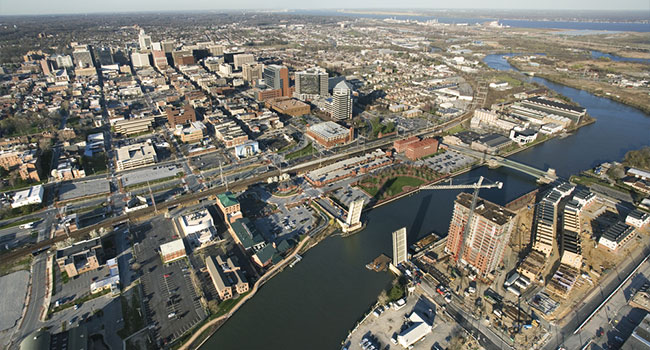
Baltimore Considers Deploying Aerial Surveillance Planes to Fight Crime
While the program has substantial public support and funding promised by philanthropists, the police commissioner has expressed doubts about its effectiveness.
- By Haley Samsel
- Oct 17, 2019
A proposal to deploy aerial surveillance planes above the city of Baltimore in a crime prevention effort is sparking debate over whether the initiative would violate residents’ rights to privacy amid a rise in violent crime.
While Baltimore Police Commissioner Michael Harrison has been skeptical of the planes, recent polling in the city has shown that there is substantial support for a plane program. Texan philanthropists Laura and John Arnold have expressed interest in paying for three years of such surveillance if the city accepted the project, which would cost at least $6.6 million, The Baltimore Sun reported.
On Wednesday, the board of The Greater Baltimore Committee, a leading business group, joined the chorus of calls for government officials to accept the offer due to the city’s high rate of crime.
“Given the current level of violent crime, it seems reasonable that a new technology that is being offered as an added public safety investigative tool at no cost to the city should be tried for the benefit of all citizens,” the committee wrote in a policy statement.
Harrison said there is a lack of evidence supporting the effectiveness of such a program, making it difficult for him to support the addition of planes. In 2016, the police department suspended a similar program after it was revealed that a company had secretly been conducting aerial surveillance and sharing data with police.
But after meeting with the committee last week, he said he would not prevent a private group from testing the planes in Baltimore.
“There are planes flying in the sky right now, so if they want to fly, they are welcome to fly,” Harrison told the Sun. “And if there’s data that somebody wants to give me, of course we’ll take data.”
He added: “I cannot in good conscience as a professional support something [with] zero evidence that tells us that it can or cannot work. It’s based on a presumption.”
Baltimore residents are more supportive of the potential project, according to poll results released earlier this week. Rev. Rev. Alvin Hathaway Sr., a popular local pastor, commissioned the poll of 500 registered voters in the city.
While the poll has received some criticism for posing leading questions to respondents, the results show widespread support for a plane program. When asked if they generally supported a “program to conduct aerial surveillance over the city of Baltimore to reduce serious crimes like murder,” 74 percent said they did. Twenty percent said they opposed the idea.
The numbers were similar when voters were asked about a specific scenario involving a small aircraft flying over the city, with an independent oversight group ensuring “that the system is not being abused.” Seventy-two percent said they supported the program, and 23 percent said they did not.
Anti-violence activists have also expressed support for the measure, including Doc Cheatham, who told WBAL-TV that the city must use “every mechanism we can” to track violence.
"Yes, I have a great deal of fears to make sure this is done correctly, that our civil rights are not being violated, but this could be one mechanism we could use," Cheatham said.
Any plane program would have to comply with the city’s federal consent decree with the Justice Department and fit in with Harrison’s existing crime fighting plan, according to the Greater Baltimore Committee, which supports three years of testing the technology.
While the committee acknowledged criticism of aerial surveillance as invasive, they wrote that the tech is not “any more” invasive than the “daily utilization of cameras that are prevalent in our society today.” In addition, the surveillance program should not be viewed as a “panacea” but part of a comprehensive effort to address crime, the board wrote.
“The city needs every tool and resource available to break the cycle of violent crime,” the committee wrote. “This innovative approach to crime solving is a program that is deserving of support of the Mayor, Baltimore City Council, Baltimore Police Department and the residents of the city in the fight to reduce violent crime.”